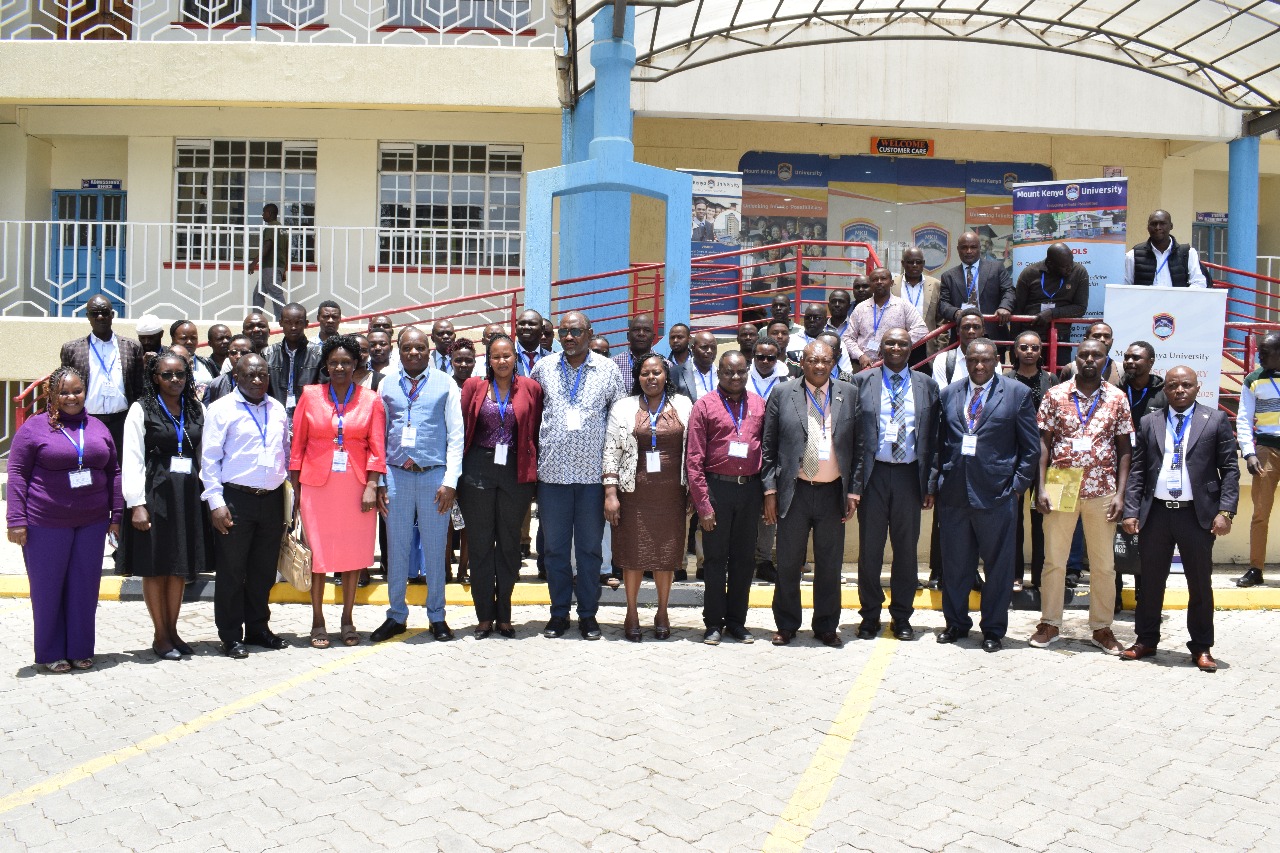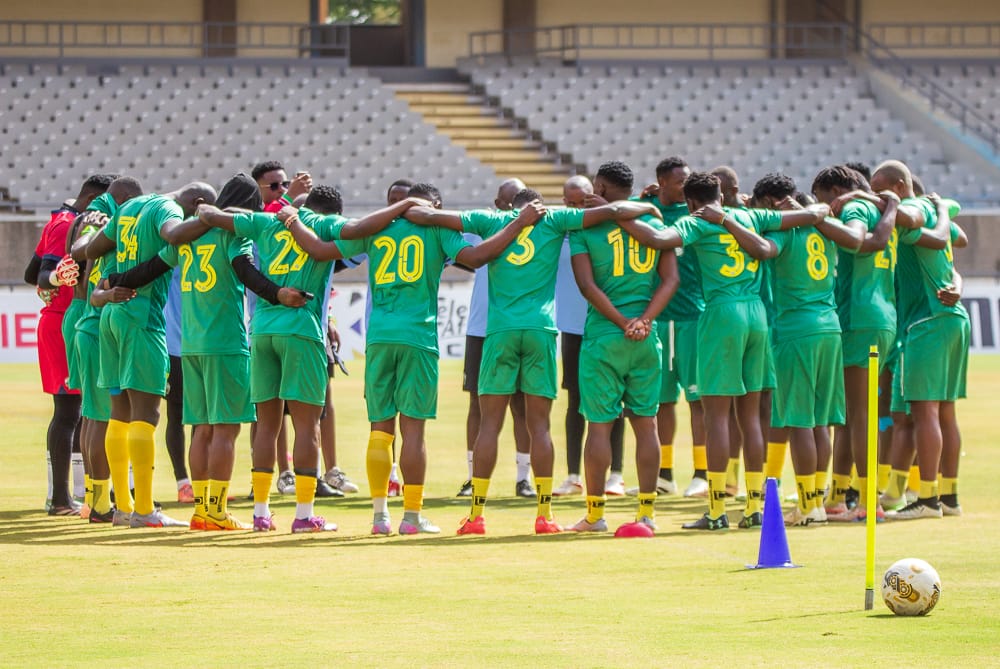Kenyans have been urged to embrace Artificial Intelligence (AI) in agriculture in a bid to bridge the food shortage gap in the country.
Mount Kenya University (MKU) Vice-Chancellor Prof. Deogratius Jaganyi says incorporating technology in every aspect of life, more so agriculture, is the surest way of addressing food deficits in Kenya.
Speaking during an interdisciplinary conference on Thursday, September 25, 2025 at MKU Nakuru campus, Prof. Jaganyi underscored that embracing technology would solve many problems in a modern society.
“We are living in a time of unprecedented change. From precision agriculture that optimises crop yields with minimal wastage, to telemedicine expanding access to health care, from solar panels powering communities, to business models prioritising both profit and planet, technology is no longer a luxury, it is a necessity for building a more sustainable future,” Prof. Jaganyi noted.
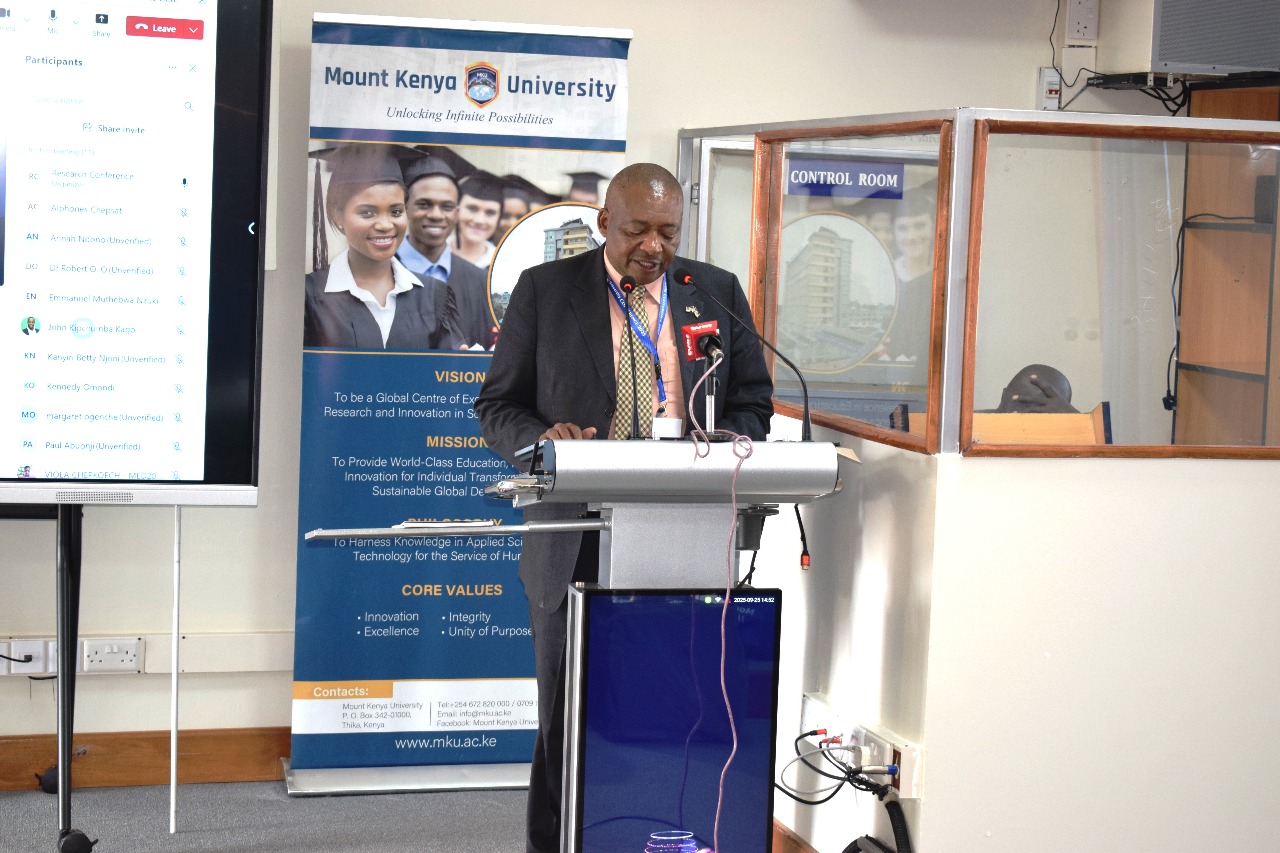
The two-day event brought together scholars from across East Africa to disseminate research findings and exchange knowledge under the theme: “Emerging Technologies and Sustainable Practices: Innovation in Agriculture, Health, Renewable Energy and Business Practices.”
The chief guest was Dr David Watene, the Director of Education, State Department of University Education, Ministry of Education. He said the government is committed to creating a sustainable and enabling environment that encourages and supports research, innovation and agriculture as key inputs in the development process.
“We have implemented policies that supported collaborations between universities, industries and government institutions to realize this important objective,” Dr Watene added.
The hybrid conference, conducted both online and by physical attendance, saw scholars make presentations on an array of fields, including Agri-Tech innovations and cultivating the future of food. The forum also discussed and showcased sustainable agribusiness: feeding the world and protecting the planet.
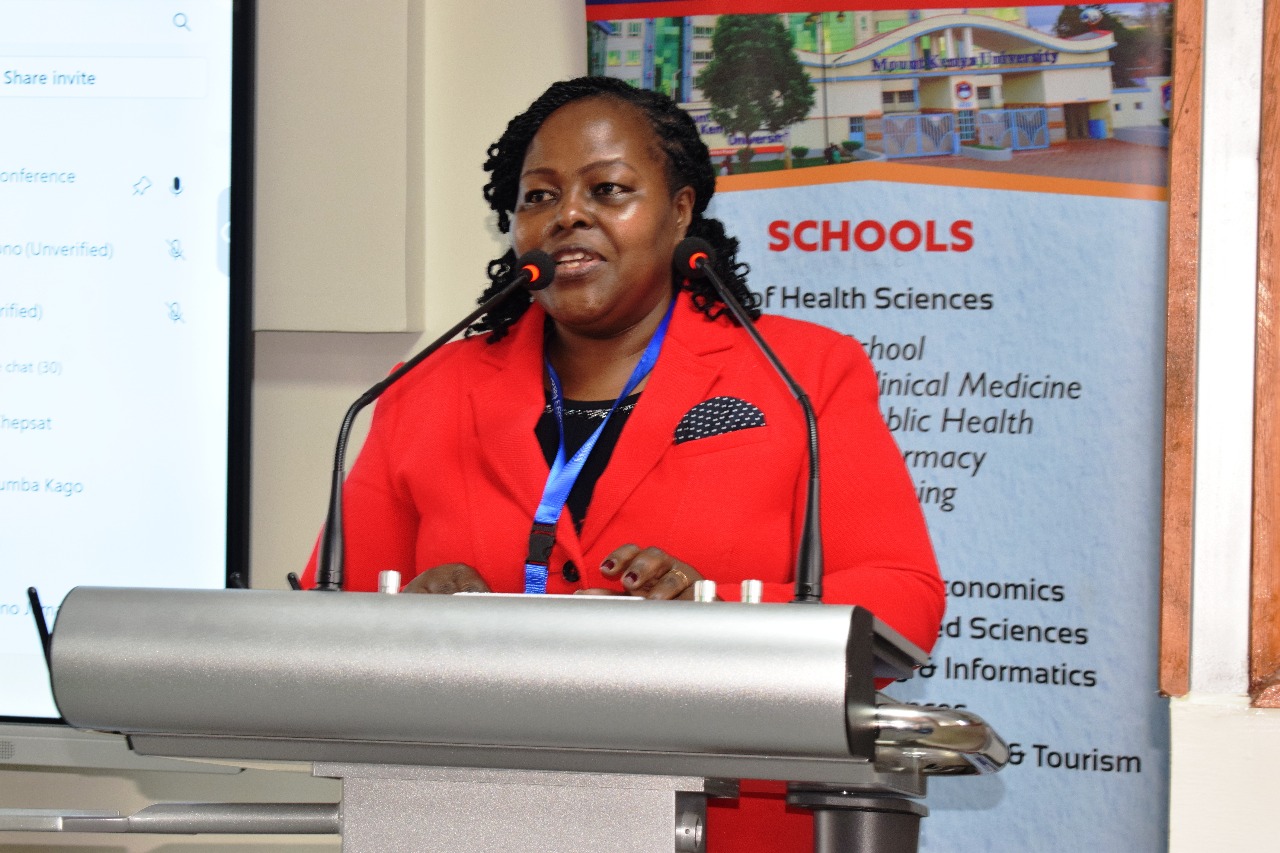
There were presentations on climate change and smart agriculture; building sustainable food systems, food security and agricultural resilience: strategies for a changing world.
On livestock farming, scholars talked about precision animal health and leveraging on technology for proactive and personalized care. A related agenda was on building resilient animal health systems: preparedness, response, and recovery.
The scholars also discussed health in action: how to address the interconnectedness of animal, human and environmental health. Student innovators showcased their innovations, some of which are already being tested in the market.
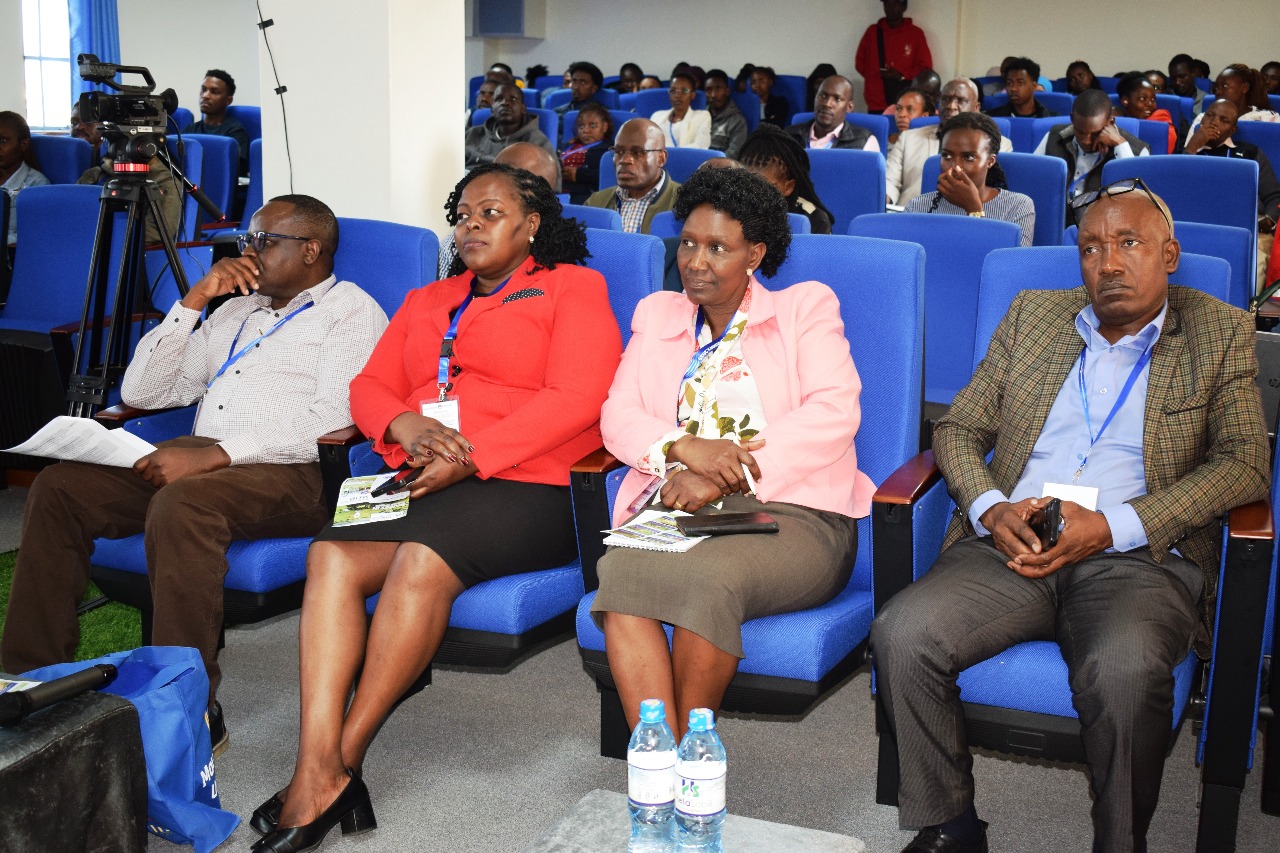
MKU Nakuru Campus Director Dr. Jacqueline Omuya assured that the institution will be at the forefront of initiating and supporting researches that fuel innovation to transform Kenyan communities.
“At MKU, we embrace a culture where ideas meet action, where research fuels innovation and collaborations spark lasting solutions,” she said.
Dr Omuya said the conference is more than just a meeting of minds. “It is a Launchpad for solutions that can transform communities.”
“The University is at the frontline of conducting research and disseminating findings that are transforming lives. Through research, our academic scholars share their expertise and develop groundbreaking innovations, which we showcase every year during the MKU Research Conference, as well as in other forums such as the one we are attending today,” said Dr. Allan Mweke, Researcher, MKU Nakuru Campus.
Prof. Jaganyi lauded the organisers of the conference, describing it as not just an academic exercise, but a catalyst for change. “Such conferences create platforms for inter-disciplinary collaborations where diverse expertise converges to generate solutions that no single field or study could achieve alone,” he added.
The conference was held at the new MKU Nakuru auditorium, named Infinite Quest Auditorium. Hamia Adhiambo Ouma, a Diploma in Business Management student, recently secured the top prize after her entry, “Infinite Quest Auditorium,” was selected in a campus-wide naming competition.
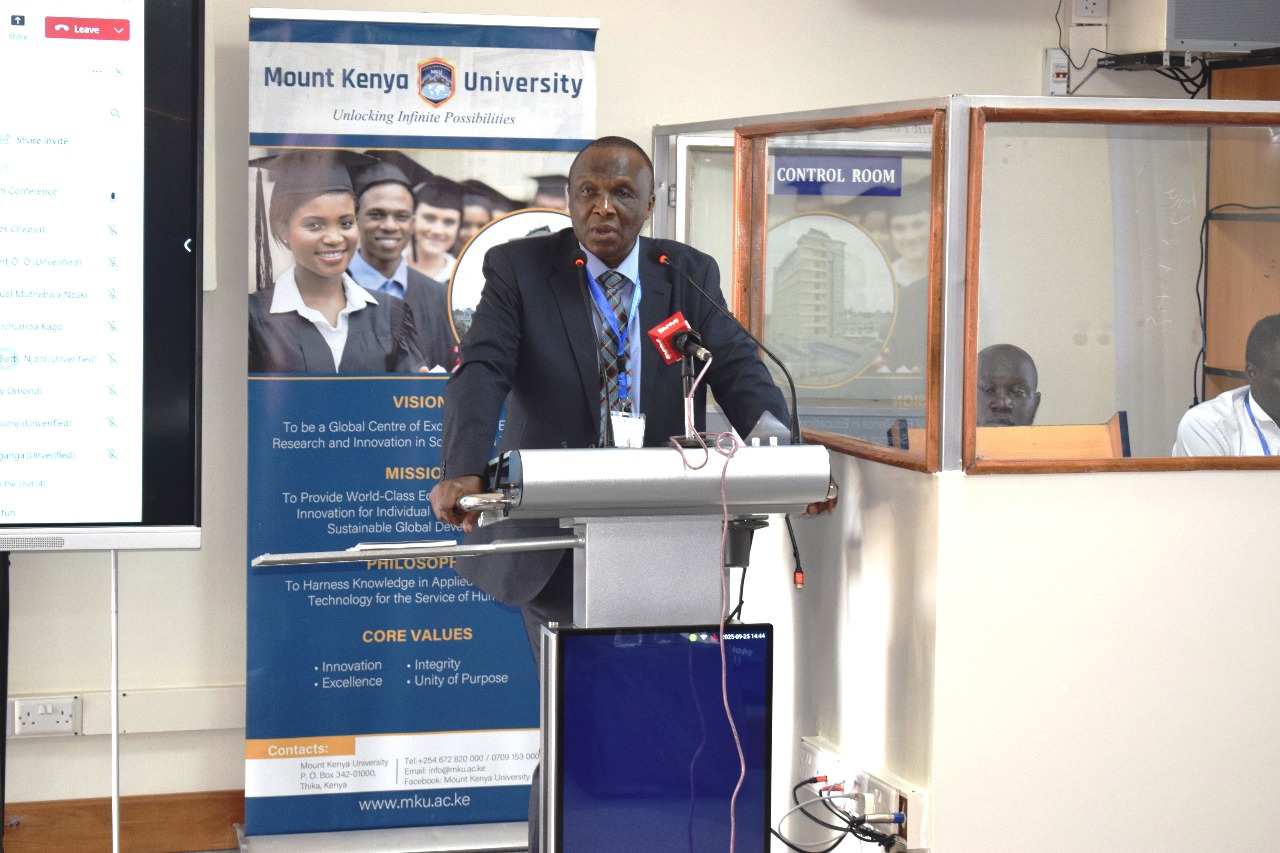
The challenge, launched earlier this year, encouraged students to showcase creativity and innovation, attracting a flood of entries. Congratulating the student, MKU founder, Prof. Simon Gicharu, awarded her Sh100,000 for winning the competition to name the university’s new auditorium.
Adhiambo intends to use the prize money to invest in her future and her community back in Nyando constituency, Kisumu county.
According to Dr. Jacqueline Omuya, MKU Nakuru Campus Director, the milestone highlights the university’s commitment to modern infrastructure, student talent, and community engagement.


